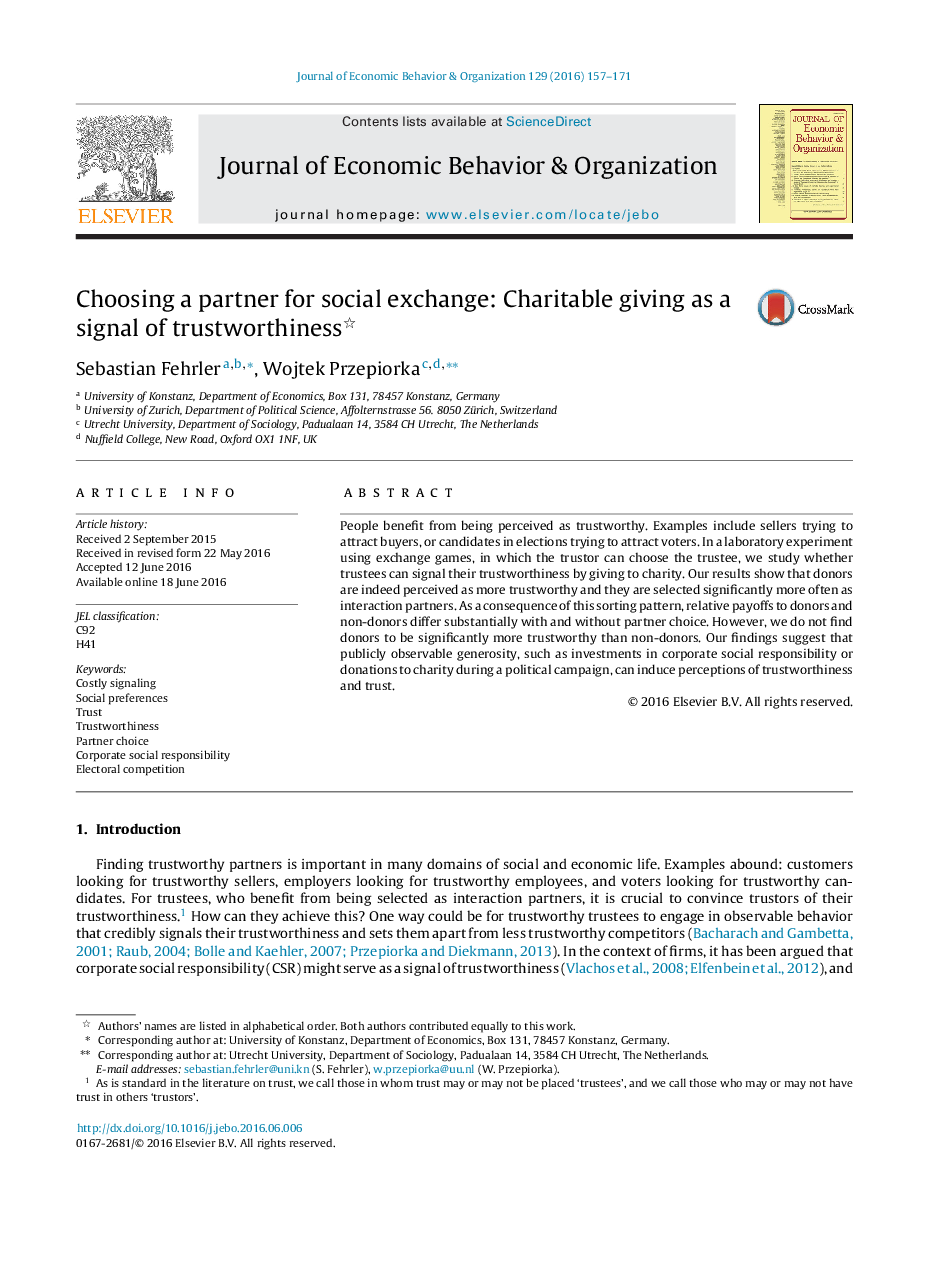| Article ID | Journal | Published Year | Pages | File Type |
|---|---|---|---|---|
| 883414 | Journal of Economic Behavior & Organization | 2016 | 15 Pages |
•In a lab experiment, we let subjects make real charitable donations to signal their trustworthiness.•We let subjects choose their interaction partner and measure their responses to charitable giving in dictator and exchange games.•Donors to charity are chosen more often as trustees and receive higher transfers in the exchange game than non-donors because they are perceived as more trustworthy.•Donors to charity are neither more nor less trustworthy than non-donors and their charitable donations do not pay off in monetary terms.•Differences in transfers to donors and non-donors are much more pronounced in the partner choice condition than in the random matching condition.
People benefit from being perceived as trustworthy. Examples include sellers trying to attract buyers, or candidates in elections trying to attract voters. In a laboratory experiment using exchange games, in which the trustor can choose the trustee, we study whether trustees can signal their trustworthiness by giving to charity. Our results show that donors are indeed perceived as more trustworthy and they are selected significantly more often as interaction partners. As a consequence of this sorting pattern, relative payoffs to donors and non-donors differ substantially with and without partner choice. However, we do not find donors to be significantly more trustworthy than non-donors. Our findings suggest that publicly observable generosity, such as investments in corporate social responsibility or donations to charity during a political campaign, can induce perceptions of trustworthiness and trust.
